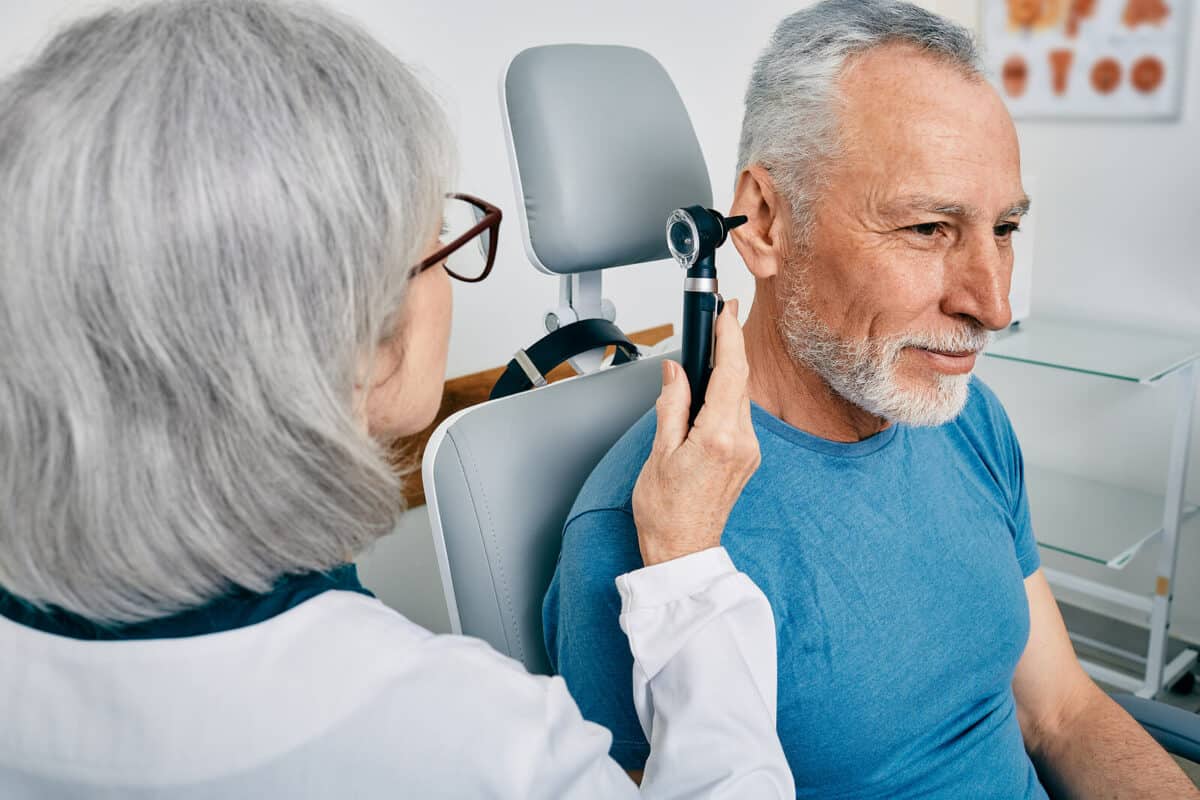National Diabetes Month is in November, and it brings attention to how much diabetes is hurting the health of Americans. Also called American Diabetes Month, the focus is on making healthy changes and lowering the risk of getting type 2 diabetes. Diabetes affects more than 30 million people in the United States. It hurts them physically, emotionally, and socially, costs them money, and hurts their health.
If you are among the many 30 million Americans with diabetes, there’s something else to consider – you also need to watch your hearing closely. Research shows people with diabetes are more than twice as likely to develop hearing loss than those who do not have diabetes. That’s why keeping a close watch on your hearing is essential. Get regular hearing evaluations to ensure you don’t have hearing issues related to your diabetes.
Understanding diabetes
Diabetes hampers the body’s ability to produce and manage insulin properly. This causes glucose to build up in the bloodstream when the glucose should be being used as fuel for body cells. The number of those diagnosed with diabetes is increasing – there’s been a 50% jump in the last ten years.
There are three types of diabetes: Type 1, Type 2, and gestational. Each involves glucose issues, but gestational typically disappears after the baby is delivered. In all three types, there is an increase in blood sugar levels which must be managed.,
Symptoms include frequent urination, increased thirst and hunger, fatigue, blurred vision, concentration problems, and healing issues involving infections.
Diabetes and hearing loss
Two studies in recent years have examined the relationship between diabetes and hearing loss.
The National Institutes of Health conducted a 2008 study that found that participants with diabetes were more than twice as likely to have mild to moderate hearing loss than those who didn’t have the disease. People with diabetes experienced high-frequency hearing loss at 54%, whereas non-diabetics experienced high-frequency hearing loss at the rate of 32%.
A 2012 study published in the Journal of Endocrinology and Metabolism supported the findings of the 2008 study. The 2012 study analyzed results from 13 individual studies involving 20,000 participants. The study concluded that people with diabetes were more likely to have hearing loss than those without the disease, regardless of their age range.
Why hearing loss?
Scientists suspect diabetes impacts hearing because high glucose levels damage the small blood vessels in the inner ear.
Like all body parts, the hair cells in the inner ear depend on good circulation to stay healthy. These tiny cells have a big job; they translate the noise our ears collect into electrical impulses. The impulses are then sent along the auditory nerve to the brain, and the brain interprets them as recognizable sounds. The hair cells, or stereocilia, do not regenerate or grow back if damaged or destroyed. Once they are gone or damaged, hearing is permanently affected.
But the resulting sensorineural hearing loss can be treated with hearing devices such as hearing aids.
Protect your hearing if you have diabetes
Although hearing loss due to cell damage or loss is permanent (but treatable), you should still preserve your remaining hearing if you have diabetes.
- Turn down that volume on your electronic devices, the television, and the car radio.
- Excessive noise is anything over 85 decibels, and there are phone apps you can download that give you a noise decibel reading. For example, snow blowers, lawnmowers, power drills, motorcycles, chainsaws, and construction equipment make noise over 85 decibels. Protect your ears from excessive noise by using disposable earplugs.
- Make exercise part of your daily routine. A brisk walk will improve your circulation, including the blood flow to your ears. Consult your doctor if you have questions about the exercise that is appropriate for you.
- Watch your weight. Excessive weight makes it difficult for your heart to pump blood effectively and efficiently to all body parts, including your ears.
Call today for a hearing evaluation.
You must keep close tabs on your hearing – especially if you have diabetes. Contact us today to get an appointment! We’re here to help you manage and monitor your hearing loss for any changes and take action if your hearing needs treatment.

